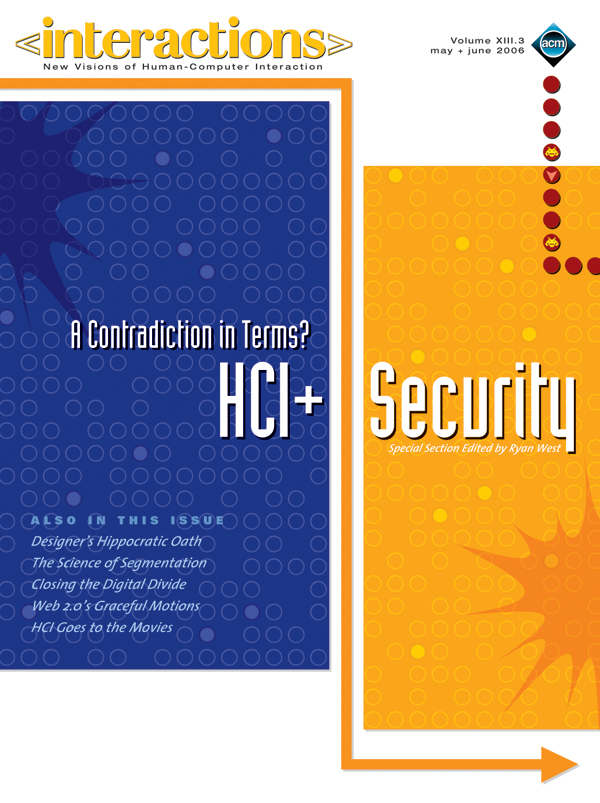Authors:
Clayton Lewis
More and more HCI professionals are working on increasing access to computing systems for people with disabilities, as can be attested by participation in the lively ASSETS conferences of ACM's SIGACCESS (Special Interest Group on Accessible Computing). Technology for people with cognitive disabilitiesfrom mental retardation and developmental disabilities, brain injury, stroke, effects of aging, or severe mental illnessis an area in which activity is growing especially rapidly. And the need is great: While good world data is not available, it's a reasonable estimate that as many as 400 million people worldwide suffer from these conditions. While public attitudes are…
You must be a member of SIGCHI, a subscriber to ACM's Digital Library, or an interactions subscriber to read the full text of this article.
GET ACCESS
Join ACM SIGCHIIn addition to all of the professional benefits of being a SIGCHI member, members get full access to interactions online content and receive the print version of the magazine bimonthly.
Subscribe to the ACM Digital Library
Get access to all interactions content online and the entire archive of ACM publications dating back to 1954. (Please check with your institution to see if it already has a subscription.)
Subscribe to interactions
Get full access to interactions online content and receive the print version of the magazine bimonthly.







Post Comment
No Comments Found